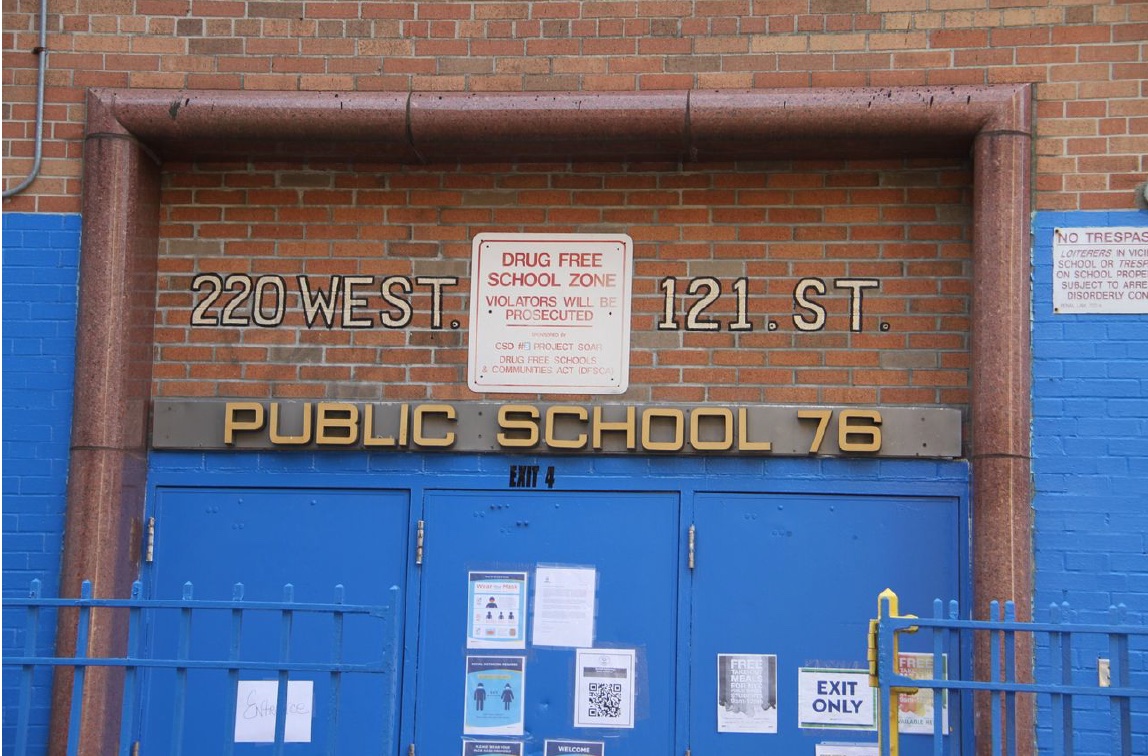 The Real Structural Racism
The Real Structural Racism
Is it OK that black eighth graders aren’t proficient in math and reading?
Wall Street Journal | September 6, 2021
By William McGurn

A public school in Harlem, Nov. 19, 2020.
PHOTO: NIYI FOTE/ZUMA PRESS
Rep. Alexandria Ocasio-Cortez may have a point about structural racism. But it’s probably not the point the Queens Democrat and her progressive allies think it is.
For if ever there were a structure systemically keeping African-Americans from getting ahead, it would surely be America’s big city public-school systems. By any objective measure, these schools consistently fail to provide their African-American students with the basic education they will need to get ahead. But instead of addressing achievement head on, the progressive answer is to funnel yet more money into the existing failed structure, eliminate tests that expose its failure, and impose race-based preferences to make up for it.
Look, for example, at the most recent results from the National Assessment of Educational Progress, the nation’s report card. For the past 20 years, achievement has been broken down by school district level in its Trial Urban District Assessment. Of the 27 U.S. urban school districts that reported their results for 2019—from Boston and Chicago to Fort Worth, Texas, and Los Angeles—not a single one can say a majority of the black eighth graders in their care are proficient in either math or reading.
It isn’t even close. In a number of these school districts, proficiency rates for black eighth graders are down in the single digits (see Detroit’s 4% for math and 5% for reading, or Milwaukee’s 5% for math and 7% for reading). Most are in the low teens.
In Bill de Blasio’s New York City, for example, the public schools show 10% proficiency for black eighth graders in math and 14% in English. Yet the mayor then professes to be shocked, shocked that black students aren’t passing the highly competitive entrance exams for the city’s most elite public high schools.
On this measure, even the country’s best results are still pretty rotten. Charlotte, N.C., is way ahead of the rest of the pack with 24% of its black eighth graders proficient in math. For reading, Boston took the top slot at 20%.
Think about that. The best the best school districts can do is fewer than a quarter of black eighth graders proficient in math and reading.
Certainly it’s not for lack of money. Here’s how a Census report released earlier this year puts it:
“Of the 100 largest public school systems (based on enrollment), the six that spent the most per pupil in FY 2019 were the New York City School District in New York ($28,004), Boston City Schools in Massachusetts ($25,653), Washington Schools in the District of Columbia ($22,406), San Francisco Unified in California ($17,228), Atlanta School District in Georgia ($17,112), and Seattle Public Schools in Washington ($16,543).”
San Francisco and Seattle aren’t part of the Trial Urban District Assessment districts reporting their scores. But the other four are, and their scores for black achievement are as bad as the rest. Now imagine what this means in real-life terms for the majority of black students who are not proficient in these skills. For most, it means consignment to a place on the margins of the American Dream.
In the past, progressives tried to lift black achievement. Today, they have given up.
Embarrassed by the way our big city public school systems are failing black children, progressives answer not by making it easier for these kids to get into schools where black children are achieving, whether this be charter or parochial schools. Instead, they focus on getting rid of the embarrassment by getting rid of the achievement tests that expose it, doubling down on race preferences and trying to hamstring the schools that show black children can and do learn in the right environment.
Soon the Supreme Court will decide whether to hear Students for Fair Admissions v. Harvard. At issue is Harvard’s use of race in admissions.
Harvard’s defense is that it can’t achieve diversity without some race preferences. But few will say aloud the ugly implication of this argument: If black students had to compete on merit alone, they would largely disappear from our top universities. Didn’t someone once say something about the soft bigotry of low expectations?
In her majority opinion in Grutter v. Bollinger (2003), Supreme Court Justice Sandra Day O’Connor argued that the University of Michigan Law School’s race preferences she upheld were meant to be temporary.
“We expect that 25 years from now, the use of racial preferences will no longer be necessary,” Justice O’Connor wrote. The nearer we get to that deadline, the more we see the truth: Race preferences only feed the demand for more.
Much of the objection to Harvard’s use of race in admissions is that it unfairly discriminates against Asian-Americans. True enough. But as the high court considers the case, the justices would also do well to consider how ill-served African-Americans are by a big city public education structure that is systemically failing them.
And they should ask themselves this: Is the answer to a black achievement gap to paper it over by eliminating any objective measures of achievement—and then to try to make up for it all by imposing de facto race quotas later on up the line?
Founded in 1993, the Center for Education Reform aims to expand educational opportunities that lead to improved economic outcomes for all Americans — particularly our youth — ensuring that conditions are ripe for innovation, freedom and flexibility throughout U.S. education.

